Please login or click here to join.
Forgot Password? Click Here to reset pasword
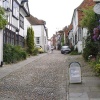 | 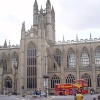 | 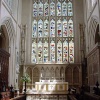 | 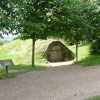 | 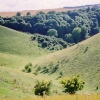 | 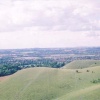 |
| Ken Marshall Posts: 804 Joined: 20th Jun 2012 Location: Australia | quotePosted at 14:33 on 20th August 2012 All of the photos I have posted on POE except one haven't been cropped or straightened.Now I have to start straightening some photos I haven't posted.I read this advice on the internet,"Unless you take all your photos with your camera mounted on a tripod, some of your photos are going to turn out a bit crooked.They are tourist-quality photos. Fortunately, Photoshop makes it incredibly easy to straighten them in just a few simple steps and without any guess work!" I used Photoshop to straighten a photo of St Paul's Cathedral in London.I straightened the dome at the top of the photo.That made the dome perfectly vertical but the right side of the photo was diagonal.Next, I straightened the right side of the picture and that made the dome slanted. It's all due to perspective so which part of the photo should be perfectly vertical? |
| Dave John Posts: 22335 Joined: 27th Feb 2011 Location: England | quotePosted at 16:44 on 20th August 2012 I tend to just make sure (don't always succeed!!!) that horizons are horizontal and tend to leave the rest because it is after all how you do actually view things. Stand at the bottom of a tall building and look up and the sides converge.......albeit not as much as they do in a photographic image, because your eye tells your brain that the edges are vertical and the brain corrects for the convergence. Could be the start of anopther good thread here Ken..... |
| cathyml Posts: 23275 Joined: 25th Jan 2010 Location: South Africa | quotePosted at 18:21 on 20th August 2012 I would agree Dave, think it is more important to get the horizon straight! I think if the verticals need straightening rather work on your focal point, or the point to which the eye is automatically drawn! That's my two-penny worth anyway!! |
| Dave John Posts: 22335 Joined: 27th Feb 2011 Location: England | quotePosted at 19:31 on 20th August 2012 The ideal, but generally impossible way, would be to calculate the exact centre spot of what ever facade, building, structure you are photographing and place your camera absolutely square to that point, but ofcourse in some cases you would need to have your camera hundreds of feet in the air.....so totally out of the question. A better way to lessen the effect of converging verticals is, a point to which Ken has already alluded, to us a tripod and ensure the camera, and lens, is perfectly level on all axis'. This means that the shutter plane is in the exact same plane as the building. You will also need to move quite far back or use a wider angle lens. You will also probably end up cropping huge chunks of foreground out post shoot as you will be shooting from around 4-5 ft off the ground whereas your subject scales to 50,100,200 ft high. But your verticals will be much more vertical. You could ofcourse start photographing animals as they are usually roundish with no straight edges and not often much higher than your natural viewpoint But having said that although I have 2 quite expensive (when I bought them 30 years ago!!!) tripods they very rarely see the light of day unless I am messing with some still life or something Edited by: Dave John at:20th August 2012 19:35 |
| Paul Hilton Posts: 2605 Joined: 21st Nov 2004 Location: UK | quotePosted at 21:19 on 20th August 2012 Kens refers to two problems he has. A slanted horizontal easiest fixed by taking the photo straight in the first place. Otherwise, Photoshop's Ruler tool will also correct it if you want to know how. Easiest is Google's free Picasa photo editing program which makes this a doddle. The second issue as Dave has pointed out, is converging verticals or Keystoning as Americans call it. Problem caused by the camera isn't parallel to the building and likely looking upwards. The more you tilt upwards, the worse it gets. Two ways in Photoshop to correct it so the building looks straight and not falling over. Duplicate the image ( Ctrl +J). then Edit> Transform> Perspective.Drag the top corner boxes outwards and the building will start to straighten. Double click the image when done, then File> Save as..... The Crop tool will also correct this----crop over the whole image, tick the box Perspective on the top edge bar. Go to the top corners and drag the crop so its parrallel to the tilted building edge. Go to the other top corner and do the same ( this will be dragging the box inwards to make it parallel. Double click the image and the sides should now become straight. How much of St Pauls should be straight? I would have said all of it. The expensive option---buy a perspective control lens. Alternatively, keep the camera back as parallel to the building as you can. Edited by: Paul Hilton at:20th August 2012 21:22 |
| Vince Hawthorn Posts: 12758 Joined: 19th Apr 2010 Location: UK | quotePosted at 21:29 on 20th August 2012 I was led to believe, correct me if I am wrong, that taking a shot of a building from a long way off using a zoom lens will lessen the sloppey sides problem. Not an answer in a lot of cases as it may not be possible to position ones self a good distance away due to local surroundings. As for horizontal horizons I have lately been trying to make myself use the grid lines in camera, they are a good check for the position of the thirds as well but I think this is probably a granny and an egg situation here. |
| Edward Lever Posts: 734 Joined: 22nd Dec 2005 Location: UK | quotePosted at 12:04 on 21st August 2012 On 20th August 2012 21:29, Vince Hawthorn wrote:
|
| Ken Marshall Posts: 804 Joined: 20th Jun 2012 Location: Australia | quotePosted at 00:09 on 22nd August 2012 Thanks everyone for your suggestions and contributions. |
| Rod Burkey Posts: 554 Joined: 2nd Sep 2008 Location: UK | quotePosted at 15:38 on 22nd August 2012 It's well worth all the effort Ken. The perpective tool is a bit hard to master at first but time will, as always out. |
| Ken Marshall Posts: 804 Joined: 20th Jun 2012 Location: Australia | quotePosted at 00:49 on 23rd August 2012 The author of Lonely Planet's Guide to Travel Photography wrote," Keep horizons level.This doesn't just mean that line far out at sea.It means all horizontal lines,such as the base of buildings, table tops,etc,that should be parallel to the ground;they should be kept at zero degrees." |